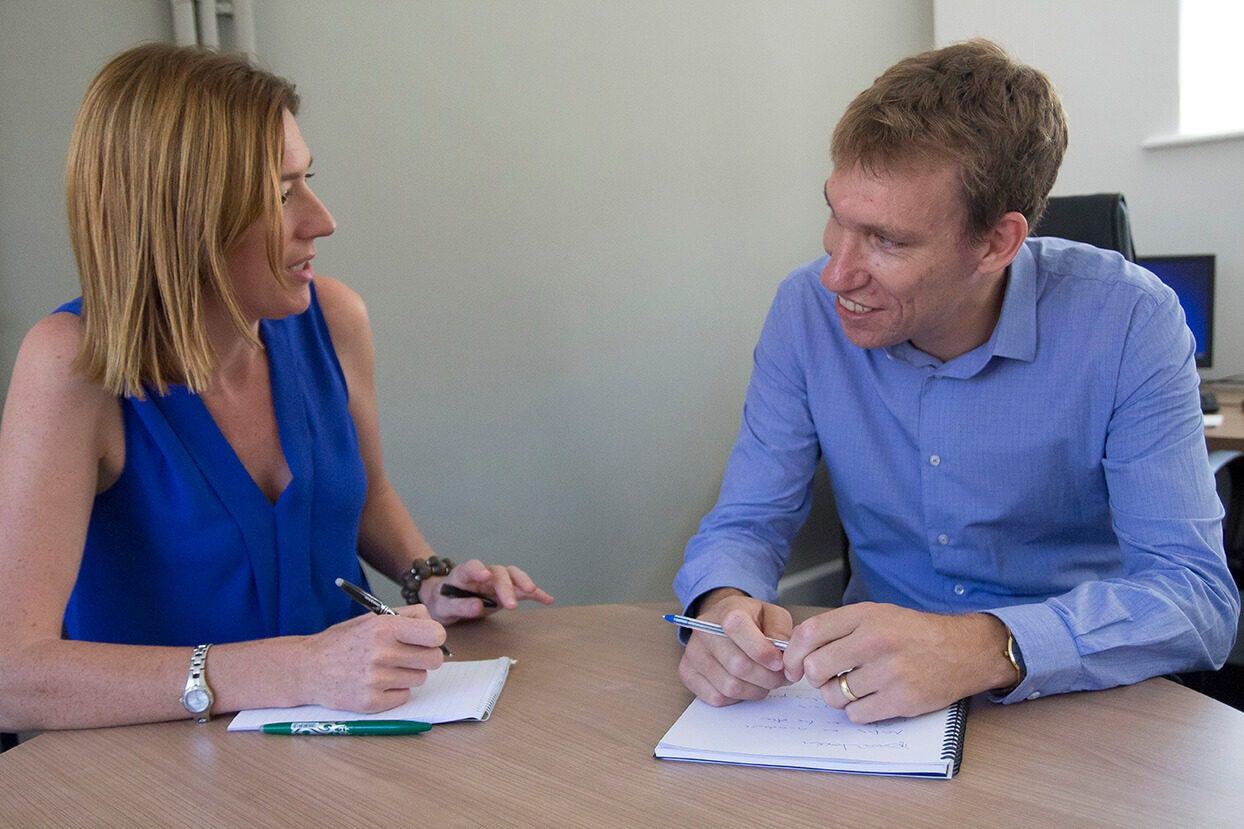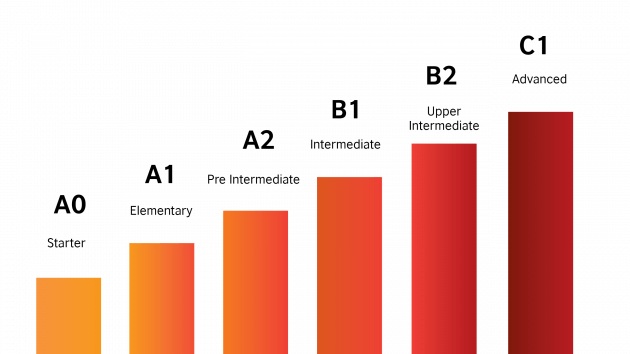Writing Professional Emails
Writing Professional Emails Even with the increased use of chat messaging services like Slack and MS Teams, email remains the key form of...
Flexible group courses for everyday communication and fluency.
Academic EnglishPrepare for university study with advanced academic language skills.
Business EnglishEnglish for professional communication in corporate and workplace settings.
Private LessonsOne-to-one lessons tailored to your goals, schedule and interests.
Language ExcursionsLearn English while exploring Cape Town with your teacher as your guide.
Get the score you need with targeted strategies and expert support.
Cambridge ExamsPrepare for the FCE or CAE with structured, high-quality training.
TOEFL PreparationBuild confidence and test skills to succeed in the TOEFL exam.
Personalised one-to-one English lessons delivered online, on your schedule.
Corporate GroupsLive online training for teams, customised to your organisation’s needs.
English for Tech ProfessionalsSelf-paced English course designed for developers, engineers, and IT teams.
Qualify to teach English in South Africa or abroad with this practical course.
Blended Certificate in TEFLCombine online study with hands-on classroom experience in Cape Town.
Learn in a historic university campus right in the city centre.
Tours and ActivitiesExplore Cape Town and make friends through weekly excursions.
Social ProgrammeJoin our schedule of fun events, outings and conversations.
Getting AroundTips and tools for navigating the city like a local.
Social and DigitalStay connected online and through our vibrant student community.
A friendly, sociable student house just a short walk from school.
Adderley StudiosModern, secure apartments in the heart of Cape Town.
HomestayLive with a local family and experience South African culture.
Hotels & AparthotelsIndependent options for comfort, privacy and flexibility.
All tuition and accommodation fees in one clear table.
Booking InformationWhat to expect before, during and after you book.
Instalment PlansFlexible payment options for long-term bookings.
User LoginView your bookings, make payments, and manage your details.
Visa options and support for international students coming to South Africa.
Insurance & TravelWhat you need to know about travel, insurance and staying safe.
MyELC AppAccess your timetable, progress and more on the student app.
Arrival and OrientationHow we help you settle in on your first day in Cape Town.
How to request certificates, transcripts, or proof of enrolment.
Terms & ConditionsThe small print — bookings, cancellations, and more.
Contact UsGet in touch with the ELC team by email, phone or WhatsApp.
Privacy PolicyHow we protect your data and respect your privacy.
What makes ELC and UCT a great place to learn English.
About the University of Cape TownSouth Africa’s leading university and home to the ELC.
About the English Language CentreWho we are, what we offer, and how we teach.
Our TeamMeet the teachers, support staff and leadership team behind ELC.
Our international quality standards and endorsements.
Media & PressNews coverage, interviews and media mentions of ELC.
TestimonialsWhat our students, partners and teachers say about us.
BlogUpdates, stories and insights from the ELC community.
Flexible group courses for everyday communication and fluency.
Prepare for university study with advanced academic language skills.
English for professional communication in corporate and workplace settings.
One-to-one lessons tailored to your goals, schedule and interests.
Learn English while exploring Cape Town with your teacher as your guide.
Get the score you need with targeted strategies and expert support.
Prepare for the FCE or CAE with structured, high-quality training.
Build confidence and test skills to succeed in the TOEFL exam.
Personalised one-to-one English lessons delivered online, on your schedule.
Live online training for teams, customised to your organisation’s needs.
English for Tech Professionals
Self-paced English course designed for developers, engineers, and IT teams.
Qualify to teach English in South Africa or abroad with this practical course.
Combine online study with hands-on classroom experience in Cape Town.
Learn in a historic university campus right in the city centre.
Explore Cape Town and make friends through weekly excursions.
Join our schedule of fun events, outings and conversations.
Tips and tools for navigating the city like a local.
Stay connected online and through our vibrant student community.
A friendly, sociable student house just a short walk from school.
Modern, secure apartments in the heart of Cape Town.
Live with a local family and experience South African culture.
Independent options for comfort, privacy and flexibility.
Use our Course Wizard to match your goals and level to the best option
Course WizardAll tuition and accommodation fees in one clear table.
What to expect before, during and after you book.
Flexible payment options for long-term bookings.
View your bookings, make payments, and manage your details.
Visa options and support for international students coming to South Africa.
What you need to know about travel, insurance and staying safe.
Access your timetable, progress and more on the student app.
How we help you settle in on your first day in Cape Town.
How to request certificates, transcripts, or proof of enrolment.
The small print — bookings, cancellations, and more.
Get in touch with the ELC team by email, phone or WhatsApp.
How we protect your data and respect your privacy.
What makes ELC and UCT a great place to learn English.
About the University of Cape Town
South Africa’s leading university and home to the ELC.
About the English Language Centre
Who we are, what we offer, and how we teach.
Meet the teachers, support staff and leadership team behind ELC.
Our international quality standards and endorsements.
News coverage, interviews and media mentions of ELC.
What our students, partners and teachers say about us.
Updates, stories and insights from the ELC community.
4 min read
Simon Harrison
Updated on July 6, 2025

Table of Contents
As UCT launches it’s first Certificate in Teaching English as a Foreign Language course, the UCT English Language Centre Principal, Simon Harrison, and Director of Studies, Juliette Hartmann, explain what to look out for when choosing a TEFL course.
What kind of qualifications do teachers at ELC need to work here?
J: A university degree, a CELTA or accredited TEFL minimum, but more preferably, and some experience.
Why is this important? Or why are you strict about this?
J: It’s all about quality control. I must know they can teach, because they need to be able to uphold the standards of UCT.
S: Like all departments at UCT, we are expected to implement a proper quality assurance framework and maintain the level of academic standards one would expect from the top ranked university in Africa.
Why would it be important to also have a university degree, even if it’s not in English, to teach English?
J: Many of our students learning English at UCT English Language Centre are planning to go on to full degree studies after their course, or are going to be doing their postgraduate studies. It is important that their teacher has some academic background so that they can support the students in their preparation for their studies.
What is the difference, in a nutshell, between TEFL, CELTA and DELTA?
J: A DELTA is a diploma, and is of a higher level. It is at the same NQF level as a Master’s degree, and assumes you have a fair understanding of teaching already, so it’s all about fine-tuning and adding techniques. It is a post-experience qualification (i.e. you have been teaching already) and hones in on reflective teaching.
CELTA is an entry level qualification where you learn teaching techniques. This course is accredited by Cambridge and basically sets the international benchmark. The course is 200 hours and is generally an intensive 4 week course, although it can be taken part time.
TEFL is an independent version of the CELTA. So, contrary to what many people think, the TEFL is not necessarily lower or of less value than a CELTA. It all depends who is teaching the course, and the credentials of the institution delivering the course. The ELC Certificate in TEFL is a 200 hour course which is accredited by the University of Cape Town. Other TEFL courses may involve less training hours, or may not be accredited by an educational institution.
There are so many different types of TEFL courses out there – online, part time, full time, 60 hours, 120 hours, etc. What does this all mean and what should people look out for?
J: There are obviously advantages and disadvantages of any of these courses. The issues with an online course are quality control (how can you be sure the work was not done by someone else?) and there is often little or no teaching practice, which is vital. The teaching component is where one garners real classroom experience and is able to put the theory into practice. Also, you are learning and getting proper constructive feedback from the course coordinators and your peers. The ELC TEFL course is taught using similar methodology to that which is used to teach English to learners. This means that you are experiencing the methodology first hand as a trainee; this in turn helps you to understand it and put into practice as a teacher.
When talking about a 60-, 120- or 200-hour course, this means the number of notional learning hours that make up the course. A notional learning hour is either an assignment or contact hour. Different countries have different requirement in terms of the number of hours you need to take in order to be considered a qualified EFL teacher. To work in South Korea, for example, a minimum of 100 hours is required. Of course this is the absolute minimum, so if you really want to be an EFL teacher, or a good one anyway, you should be aiming higher than this! As a tertiary institution we benchmark against the international industry standard- the CELTA – which is why we run a 200 hour course.
With regards to a full time versus part time course, I see no major differences. A full time course can be exhausting, but motivation runs high and is maintained throughout the course, whereas this could be lost in a part time course. However, a part time course is less stressful, and that’s obviously a positive thing.
ELC is starting a TEFL course on Monday. What makes this course so unique?
S: We have some of the best trainers in South Africa working at ELC, and the Centre is run by two teacher trainers (Juliette and myself) with years of experience, so we know what we are doing here. Again, maintaining the high UCT standards is imperative. Juliette and I are both internationally qualified, and while South Africa is making leaps in terms of the standards of TEFL, we bring a lot of international experience with us.
What I love about the people I work with here is that everyone is fresh, innovative and full of ideas. And everyone who works here is continually keeping up with industry changes, advances, research and study.
J: This is also evident in the course content we designed for the TEFL course. It’s innovative and up-to-date. We are not regurgitating the same things that have been taught for years. It’s based on years of teaching and training experience and a strong understanding of teacher education methodologies.
Why would the information given here be important for students who are looking at choosing a language school, as well as those wanting to become English teachers?
J: Well, for students it allows them to make a more informed decision. A student should be able to ask what teaching qualifications the schools’ teachers have, and then properly understand the answer. This is not to say you should demand to see the CV of every teacher that works there! But generally a mix of more experienced, DELTA qualified teachers, and teachers who have a CELTA or an accredited TEFL is what you should be looking for in a school. If schools have a staff page which includes information on teacher qualifications, that is usually a good place to start.

Writing Professional Emails Even with the increased use of chat messaging services like Slack and MS Teams, email remains the key form of...

English Words Borrowed from other Languages Modern English words, as we know them, have an interesting background. So where do so many of the...

Moving to the Next English Level Many of the students who come to study English with us at the UCT English Language Centre are interested in going...